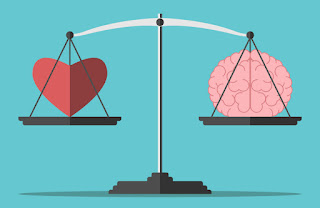KNIT HAPPINESS WITH EMOTIONS
The space between the two ears defines our relationship with ourselves and the world around us. From national to international relations, conflicts; everything is a play of minds. In our everyday moments, dealing with people and their sentiments is connected with emotional intelligence. Strangely, the emotional quotient was deemed pointless and was left to impulse and intuition. Our environment used to see these as too minute and stopped us from addressing these emotional knots. In modern times, we have acknowledged the significance to harness it to our advantage. Understanding emotions becomes all the more relevant in the technological age where tasks are mechanical and automated.
Emotional intelligence is an awareness of your actions and feelings – and how they affect those around you. It is the key to relating well to others and achieving your goals. It also means that you value others, listen to their problems, and can empathize with them. We can identify, introspect, and communicate with poise and clarity, to the rarely critical instants in our life. Such an individual is highly conscious of his emotional state, can identify and manage it.
Emotional quotient or EQ has earned wide acceptance at the workplace as employers have incorporated it in the interview processes. From a formal relation to a personal empathetic one, the boundaries are blurring resulting in innovative employees, higher job satisfaction and increased productivity.
Our faculty to recognize, discriminates between diverse feelings, manage, problem-solving, and enhance relationships helps us in our everyday dealings. With social awareness, you learn to perceive other’s sentiments and discern their responses in a given circumstance and react consequently. Emotional regulation does not imply constricting or repressing sentiments but to endure them as they shape our words and actions. The contained emotions are illnesses in incubation so the ticking bomb should be addressed instead of avoiding it. When we lose our clarity of emotions and the panic causes tunnel vision, calmness clears our emotions and thoughts. Our mind is like a garden and we can decide which seeds to plant. The seeds of calm and restraint will bestow us with a finer fruit. Compassion towards oneself and others too aids in making us emotionally healthy. “Tenderness and kindness are not signs of weakness and despair, but manifestations of strength and resolution,” expresses Khalil Gibran
For children, understanding emotional empathy should start in childhood. For an emotionally healthy childhood, conceive an empathetic atmosphere for children where we are not overly enthusiastic about accomplishments in life. There should not be any singular scenario the child has to conform to be loved. They must know that things that break can be fixed, plans can go awry, fresh ones can be created. You can fall over and start anew.
For example, your teenager comes home from school in a snappy mood. Instead of reacting, you can respond by finding out about her day in school. Slowly you will find out that she was disturbed about the behaviour of the classmates in a new school. You can reason out and help find solutions to her problems. Children should grow in an ambience where they can communicate themselves free of judgment and criticism. Plato rightly says, “All learning has an emotional base”.
We are born with an IQ; EQ can be developed as we move on in life. On can learn to cultivate EQ by being self-aware, have empathy, self-regulation, motivation, and enhancing social skills. These can be achieved by knowing your strength, being grateful, mindful, and strengthening positive memories. When you are self-aware, you can regulate your emotions effectively. Empathy helps you connect better with people as it is the doorway to basic human interaction. Motivation and optimism take you on the path of resilience. When you are conscious of your emotions and the reaction they trigger, you can learn to manage them to your advantage. Individuals with a high emotional quotient are confident, better decision-makers, build stronger relationships, can diffuse conflicts and communicate effectively. “When dealing with people, remember you are not dealing with creatures of logic, but with creatures of emotion.” — Dale Carnegie
Be able to identify, understand and manage the emotions in positive constructive ways thereby building an emotionally healthy world. MESS (Motivation, Empathy, Self-awareness and Social Skills) can keep us out of the real mess in our lives and on to the path of an emotionally balanced life.
Images from Google







Relevant in all times, emotional intelligence has gained more significance during the Pandemic. Albeit, the balance between own and others emotions remains an enigma.
ReplyDeleteGreat contribution on the issue
Thank you so much
DeleteThe only way to change someone's mind is to connect with them from the heart. Therefore, emotional intelligence is essential; only when you show that you genuinely care then one connects with you. Well written, Sonia!!🤗
ReplyDeleteThank you so much Gagi
DeleteEmotional intelligence affects every facet of life. It influences our behaviour and relationships. You hv explained it so beautifully.
ReplyDeleteThank you so much Seema
DeleteWell explained.
ReplyDeleteThank you so much Anupam
DeleteAnother food for thought. An unexplored area may well be the realtionship of Social Media, Abridged Communications and EQ. Is Empaathy dying ine age of Quickfix ?.
ReplyDeleteinteresting idea
Delete